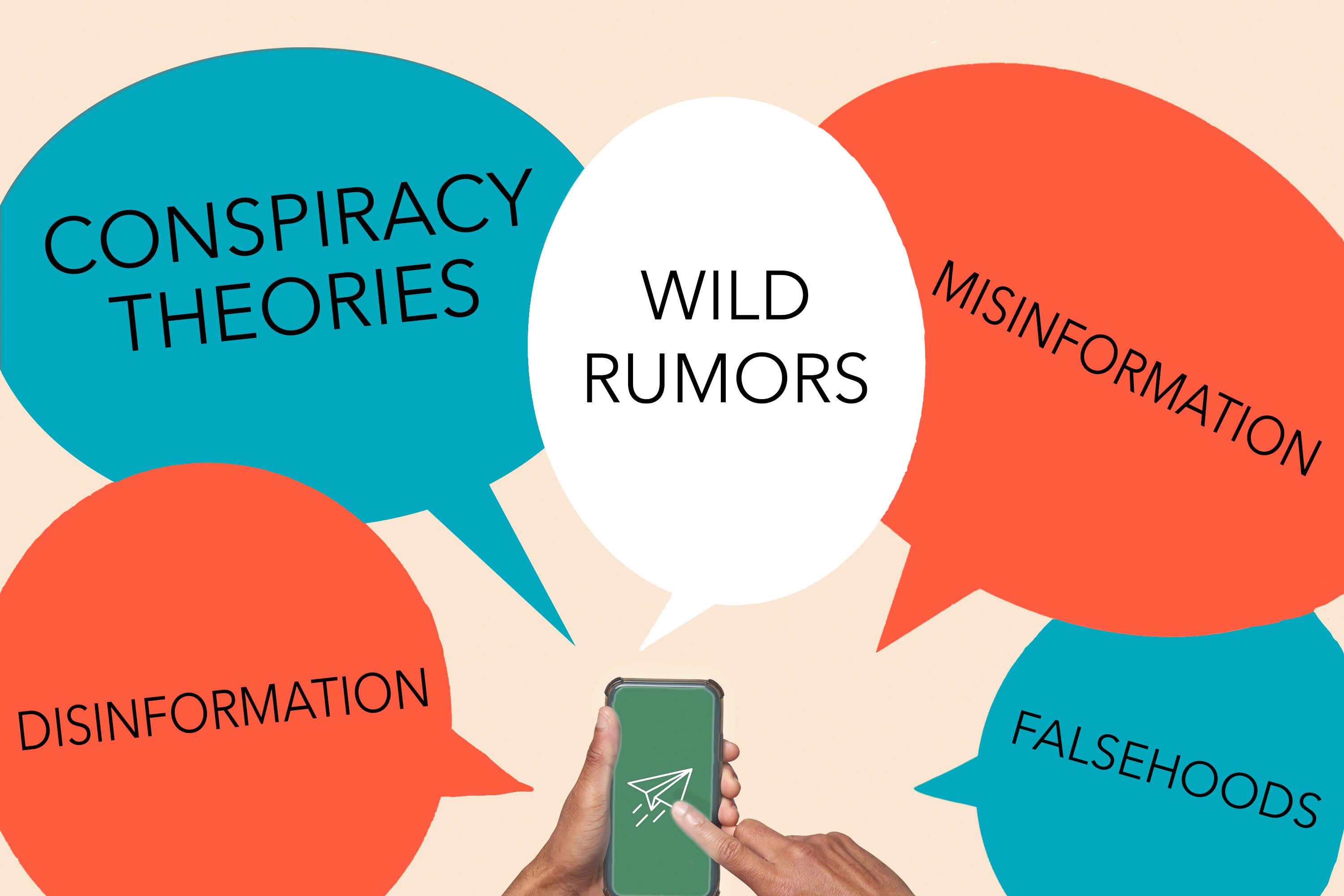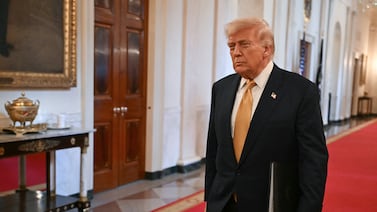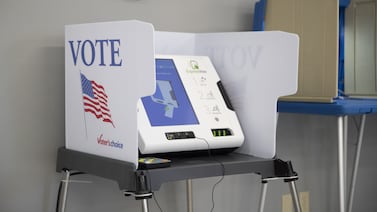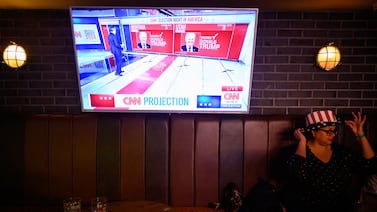Votebeat is a nonprofit news organization reporting on voting access and election administration across the U.S.
A version of this post was originally distributed in Votebeat’s free weekly newsletter. Sign up to get it delivered to your inbox every Saturday.
My colleague Carter Walker and I spent a few days last week in chilly conference rooms at Washington D.C.’s Grand Hyatt hotel, listening to secretaries of state swap strategies at the National Association of Secretaries of State gathering. It was clear that after a couple of tumultuous conspiracy-filled years (understatement alert!), they’re thinking hard about how to get good information to voters, against the backdrop of an ever-shifting social media landscape.
Michigan Secretary of State Jocelyn Benson said voters in her state will be navigating “perhaps some of the most significant changes to our voting options that citizens have encountered in recent history.”
Benson, a Democrat speaking as part of a session on communications prep and messaging in advance of the presidential primary, said she expects her office will need to both “prebunk and debunk misinformation” around those changes, many of which stem from a ballot proposal adopted by voters last year that overhauled voter access in the state, as well as some shifts around the presidential primaries.
Changes, Benson said, can create opportunities for bad or misleading information that targets voters and she made it clear a communications strategy to get ahead of any attempt to mislead voters is a key priority. At an earlier session, she highlighted a “Truth Tellers Task Force” (she’s still workshopping the name), which she described as made up of trusted local voices around the state, such as faith, business and sports leaders, who can answer questions and help boost voter confidence.
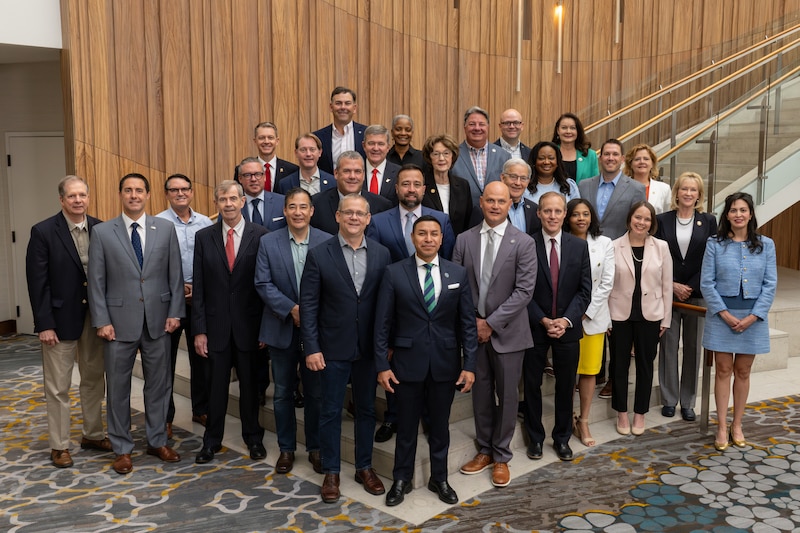
New Hampshire Secretary of State David Scanlan, a Republican, touted a special committee on voter confidence that toured New Hampshire (as well as tent cards his office distributes to local clerks that, he happily said, he’s spotted in rural diners). In an interview, Colorado Secretary of State Jena Griswold, a Democrat, pointed to her office’s decision to spend money promoting videos on social media, including a bipartisan spot she filmed with a one time opponent, Republican former Colorado Secretary of State Wayne Williams.
Only days before the secretaries gathered, a federal judge issued a broad injunction limiting federal officials, including the Cybersecurity and Infrastructure Security Agency, from asking social media companies to address, restrict, or take down “content containing protected free speech.”
The judge was acting in response to a lawsuit from the Republican attorneys general in Missouri and Louisiana. The government argued it is trying to address false information that can cause violence and harm, and has appealed. On Friday, an appeals court temporarily blocked the order from going into effect. Conservatives have said such coordination amounts to censorship.
“The government can’t pressure private actors to do something unconstitutional and then say it’s private actors,” said Brad Smith, the chairman and founder of the Institute for Free Speech, who says the government should be allowed to express its point of view to social media companies, but not pressure them. “The argument here should simply come down to how much pressure do you think should be allowed, and I think we need to be careful.”
The injunction didn’t specifically cover state officials, and the reactions of secretaries of state, which includes officeholders of both parties, varied.
But it’s yet another factor to consider as election officials around the country combat conspiracy theories and get reliable information to voters and worry about the role artificial intelligence could play in spreading misinformation or disinformation about elections.
Several secretaries of state, including Al Schmidt of Pennsylvania, a Republican, said they are monitoring the case and it’s too soon to say what the impact could be. But “of course it would have a chilling effect on the ways of trying to push back on disinformation,” said Griswold, the head of the Democratic Association of Secretaries of State. “And to be very clear, our foreign adversaries are using social media to try to destroy American democracy, and domestic extremists are choosing to join them in their efforts.“
Some secretaries confirmed they have direct relationships with many large social media companies and will reach out as they need to, but “you still don’t want these roadblocks, any type of roadblocks,” Washington Secretary of State Steve Hobbs, a Democrat, said in an interview.
But approaches vary. Secretary of State Michael Adams, a Republican, said that when his office was concerned about a tweet about Kentucky elections by former Arizona GOP gubernatorial candidate Kari Lake, rather than directly approaching social media companies, he pushed back online himself with correct information and reached out to Lake via intermediaries, though he said he didn’t hear back.
Minnesota Secretary of State Steve Simon, a Democrat, stressed that secretaries of state “are not regulatory bodies,” and don’t have the authority to coerce social media companies. Rather, he said, election officials are trying to help the social media companies eliminate false information, a goal the companies say they have as well. Disinformation, he said, isn’t a matter of censoring opinion.
“I will continue to push back and urge social media companies to push back against those who say that election equipment in Minnesota is changing votes from Candidate A to Candidate B,” he said. “That is not happening, it has not happened, it won’t happen.”
Back Then
Happy birthday to Twitter, which pre-launched as a public service 17 years ago today as “Twttr.” In 2006, Twitter didn’t look much like what it looks like today (or even what it looked like before the Elon Musk era). It was essentially a group-text platform with a website attached. For fun, here is the founder of TechCrunch offering his assessment of Twitter at the time:
“There is also a privacy issue with Twttr. Every user has a public page that shows all of their messages. Messages from that person’s extended network are also public. I imagine most users are not going to want to have all of their Twttr messages published on a public website.”
Like a fine wine.
In Other Voting News
- The Election Assistance Commission has released a fulsome report on disability access in the 2022 election in coordination with Rutgers University. Among other interesting findings: Around one in seven voters with disabilities experienced difficulty at the polls, up from one in nine in 2020.
- In new court filings, former Georgia poll workers Ruby Freeman and Shaye Moss ask for former Trump lawyer Rudy Guiliani to be sanctioned for what they say is a pattern of failures to turn over relevant evidence in the case. They have also asked for a default judgment in their favor as well as attorneys fees.
- The Washington Post reports that Arizona Attorney General Kris Mayes’s office is investigating attempts in the state to overturn President Joe Biden’s 2020 victory there by submitting false slates of electors. The office told the Post it is in a “fact gathering” phase and declined to say if laws had been broken.
- The Georgia Secretary of State’s office has sued Texas-based True the Vote over the group’s failure to turn over evidence it claims to possess of illegal ballot gathering in the state. It is one of multiple lawsuits, complaints, and investigations the group is now facing.
- In Michigan, Circuit Court Judge Phyllis McMillen ruled “undue possession” of voting machines is broadly illegal under state law. MLive reports this was the “final hurdle” in determining whether to press charges against nine local officials across the state who allegedly took ballot tabulators in order to inspect them for tampering.
Pennsylvania reporter Carter Walker contributed to this report. Carrie Levine is Votebeat’s story editor and is based in Washington, D.C. She edits and frequently writes Votebeat’s national newsletter. Contact Carrie at clevine@votebeat.org.

